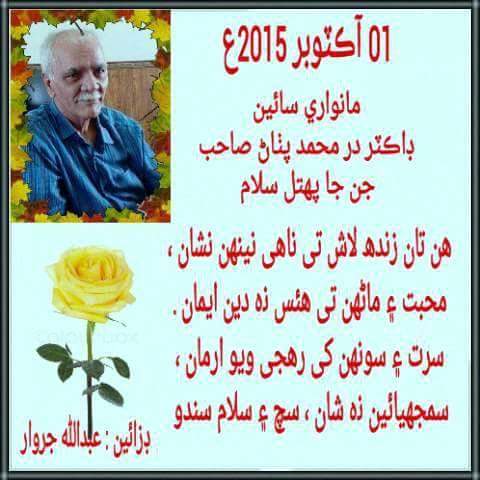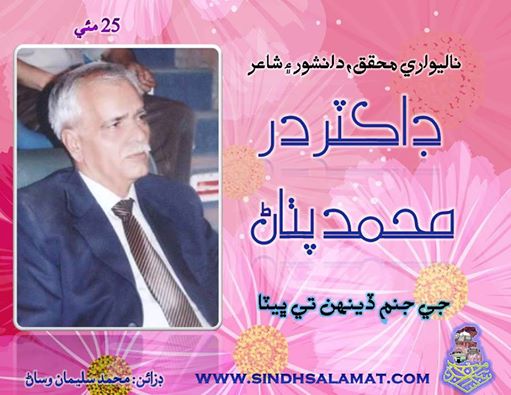|
ADDRESS AT GAKUSHUIN UNIVERSITY |
|
By |
|
Mohtarma Benazir Bhutto |
|
Prime Minister Islamic Republic of Pakistan |
|
Tokyo 20 January, 1996 |
|
Your Imperial Highness, |
|
Mr. Chancellor, |
|
Mr. President, |
|
Distinguished Guests! |
|
Apart from giving me the opportunity of addressing such a distinguished and friendly gathering, Gakushuin University has conferred on me three honors this afternoon. I have received the Honorary Award, the Honorary Degree of Doctorate of Economics and I have been made an honorable member of the Alumnae Association. I am deeply touched by the gesture and thank you very much for this. |
|
As the world stands on the precipice of a new century and a new millennium, the structures that provided order and stability to international affairs for the last fifty years have dissolved. |
|
The structure of the cold war, with two super power alliances consuming all other bilateral and multilateral relationships under the simplicity of the East-West dichotomy, has disappeared. |
|
The Soviet Union has ceased to exist. The Warsaw Pact is no more, and its most central nations—Poland, Hungary and the Czech Republic - are attempting to enter NATO. |
|
The constraints of super-power politics have been swept away; nations of the world have reached a political and economic consensus behind democracy and free market economics. |
|
But rapid political change did not result in the social and economic revolution that many anticipated as the peace dividend that was to follow the end of the cold war in 1990. |
|
The world today is very different. But the world, today, is not yet much better. Heightened expectations in the emerging democracies of East and Central Europe, Asia, Africa and South America remain unfulfilled. |
|
A disequilibrium, a discontent, an ennui is sweeping across the world. Although democracy has triumphed, although the free world has triumphed, even developed nations battle to balance their budgets. For too long, we spent more than we earned to sustain the super power confrontation. Now that it is over, we confront the challenge within our nation states to balance our books. We face this challenge in the East and we face this challenge in the West, in the rich countries and in the poor countries. |
|
The Information Age, advertising consumerism, on a mass scale, whets our appetites, raises our expectations, makes us want more than our resources can cater for, and when we can't get all that we see, it makes us angry and frustrated. |
|
We see it in the streets of Paris, where workers unite to preserve a system to which they are accustomed to, but a system which the French economy can no longer sustain. |
|
In Washington, the world's sole super power, the Federal Government twice shut down in the last months over the question of deficit, balanced budgets and reduction in government's social entitlement programme. |
|
In the countries of the former East bloc, and just last month in Russia itself, the frustration of the masses expressed itself in the political rejection of the reformers who only a few years ago were admired and idolized. A former Communist leader has become President of Poland, defeating Lech Walesa, the hero of Gdansk. |
|
In Russia, President Yeltsin, who stood before tanks to defeat the coup in 1991, has been surrounded with Communists who won a plurality of seats to the Duma in the last Parliamentary elections. |
|
The end of the Cold War has seen the decline of ideology. |
|
Ideological differences no longer characterize different political parties. |
|
The lack of ideological clarity has led to confusion at the mass level. |
|
This confusion has resulted in split mandates all over the world. It has led to split mandates, or close electoral mandates, in England, Germany, Spain, Portugal, Palestine, India, Bangladesh and Japan. |
|
The world needs new yardsticks to judge political leaders and political parties with. |
|
I believe a new yardstick exists. A yardstick based on the incontrovertible evidence of statistics. |
|
I believe political leaders and political parties should be judged on:— |
|
(i) The economic factor: Who reduces the budget deficit, who increases it, who reduces domestic borrowing, who increases it, who attracts more investment, who attracts less. |
|
(ii) On the social factor: Who spends more on education, who spends less, who spends more on health, and who spends less, who spends less on sewerage and water supplies and who spends more. |
|
(iii) And also on Corruption: Who allows government ministers to take loans, who doesn't, who spends more on government buildings and bricks, and who spends less, who has a more transparent form of privatization, and who has a less transparent form of privatization. |
|
Unfortunately, in the twilight period of transition, this yardstick is not universally recognized. |
|
Instead, politics have become increasingly personalized. Accusations and counter-accusations are made. |
|
The media then highlights scandals. Public trials are conducted through the press, through allegations and counter - allegations. |
|
The result is greater confusion, and greater cynicism, and this cynicism leads to disenchantment. The disenchantment provides the perfect backdrop for the rise of the extremists. |
|
Against the background of urbanization and crime, drug, poverty, heightened expectations and cynicism of political leaders and political parties, and some time the democracy itself, people begin to yearn for order in a world they see confronted with disorder. |
|
The simplistic, nostalgic yearning for a world of order gives rise to extremism. |
|
Freedoms are threatened. So called messiahs and self- righteous groups seek to undermine freedom of choice and force their own views on a confused and cynical public. And this is the new danger we confront. |
|
If there is a lesson in the twentieth century, that lesson is that democracy is the best system. |
|
It may not be the perfect system. It may not cure all the problems. But it is better than all the other systems the world has known, experienced and dismissed. |
|
And the youth of today are special. The youth of today have more knowledge at their fingertips through the computer and the information highway than the youth in any other generation. |
|
This places a special responsibility on the youth of today on whose shoulders will fall the responsibility of charting a new course in the new century. |
|
Youth is always full of idealism. Idealism is the catalyst to pursue dreams and to turn dreams into destiny. |
|
There is no horizon broad enough, or sky high enough which the young, with the spirit of adventure and the spirit of endeavour, do not seek to conquer. |
|
In the greatness of men and women's ability to conquer new horizons, a dark cloud casts its shadow. |
|
Despite the desire to do good and be good, men and women have often turned technological advancement into monstrous machines of destruction. |
|
The twentieth century saw the greatest advances in science and technology. |
|
We expected the new sciences to banish disease, poverty and degradation forever. |
|
But man converted the mastery bestowed by science into a massive technology of war, death and torture. |
|
But if each generation is to learn from the past, if each century is to avoid the pitfalls of the earliest century, the youth of this generation and the youth of the new century have a very special responsibility. |
|
— A responsibility to learn from history. |
|
— For those who do not learn from history, repeat the mistakes of history. |
|
— Human hubris comes from human excess. |
|
— In moderation lies the path of stability. |
|
— In moderation lies the order that we seek. |
|
— Each generation is a link in the chain of human history. |
|
— The future must connect to the past. |
|
— Traditional values and strengths must not be thrown at the wayside in embracing an unknown future. |
|
— The two must connect the past and the future. |
|
— The family unit has always been at the heart of a social organisation. |
|
— The disruption of the family unit threatens to disrupt civil society as we know it. |
|
And east has many values that the West can learn from. |
|
The importance of the family and respect to elders lies at the heart of the Eastern tradition. |
|
Single families outside marriage and same sex units are not part of the Eastern cultural identity. |
|
In a world of great change, in a world of great movement we all need an anchor. |
|
Time-tested traditional values are the anchor in an individual's life if one is not to be lost or left adrift in the sea of life. |
|
Dear students! |
|
If the 19th century was the century of Europe and the 20th century was the American century, there is little doubt that the 21st century will be the Asian Century. |
|
Long overlooked, often subjugated, Asia stands today on the brink of leadership in the new economic and world reality of the 21st century. |
|
As the economic industrial giant of the continent, the Asian century puts the very special responsibility on Japan. Economically, politically and strategically your role will inevitably become even more pivotal in world affairs than it is today. |
|
For Japan, that will require that your interests and concerns transcend this part of Asia, and extend into our part. As an example, it is short-sighted to treat nuclear proliferation as a problem of the Korean peninsula, when a much more immediate and dangerous threat exists in South Asia. |
|
In 1974, India exploded a nuclear device, called "the Smiling Buddha". Reports now surfacing in intelligence circles indicate that India is preparing to detonate still another device. |
|
India's arsenal also include ballistic missiles — long range ICBMs which they are seeking to develop, that can strike as far as the straits of Mallacca and Yemen. |
|
These developments put enormous pressure on Pakistan, for India has gone to war three times against Pakistan and continue to occupy the disputed territory of Jammu and Kashmir. |
|
The world understands Japan's special sensitivity to the issue of nuclear proliferation. Pakistan strongly endorses this commitment and that is why we have eight times made specific proposals to prevent nuclear proliferation in South Asia. We have proposed: |
|
— to establish a nuclear weapons free-zone in South Asia; |
|
— to renounce the acquisition of nuclear weapons; |
|
— to have mutual inspections of nuclear facilities; |
|
— to simultaneously sign with India the NPT; |
|
— to simultaneously agree to full-scope IAEA safeguards; |
|
— to sign a bilateral or regional nuclear test ban treaty; |
|
— to have a five-nation conference on the question of nuclear proliferation in South Asia; |
|
— to declare South Asia a zero missile regime. |
|
Let India join Pakistan anywhere in the world at any time to ensure that what happened in Hiroshima and in Nagasaki will never happen in Lahore or Delhi. |
|
Let the world ensure that the people of Kashmir are granted the right of self-determination just as the people of South Africa were granted that right; and people all over the world were granted that right. |
|
Dear Students! |
|
You are half my age. Life's challenges still await you. |
|
Do not be afraid of challenges, for in every challenge there is an opportunity. |
|
I would like to conclude with a word of advice to all of you, and that is : |
|
"Leave everything a little bit better than you found it, for every individual can make a difference". |
|
Thank you very much. |



